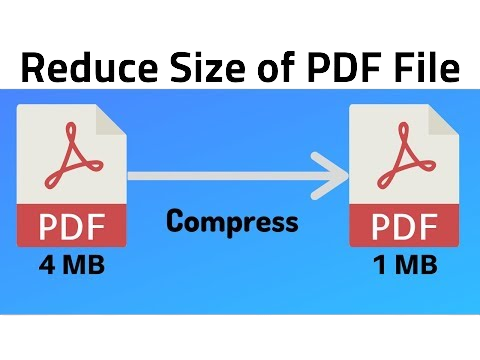Sales Tax Calculator
Sales tax plays a crucial role in the economy, funding essential services and infrastructure. As a consumer or business owner, it's essential to comprehend how sales tax works and how to calculate it accurately. Sales tax calculators are powerful tools that simplify this process, ensuring that you never over or underpay your taxes.
Sales Tax Calculator
The Ultimate Guide to Understanding and Using Sales Tax Calculators
Sales tax plays a crucial role in the economy, funding essential services and infrastructure. As a consumer or business owner, it's essential to comprehend how sales tax works and how to calculate it accurately. Sales tax calculators are powerful tools that simplify this process, ensuring that you never over or underpay your taxes.
In this comprehensive guide, we will walk you through everything you need to know about sales tax calculators. From the basics of sales tax to the benefits of using a calculator and step-by-step instructions on how to calculate sales tax for various scenarios, you'll become well-versed in handling sales tax calculations effectively.
Understanding Sales Tax :
Sales tax is a form of consumption tax levied on the purchase of goods and services. It is typically imposed by state and local governments to generate revenue and fund essential public services, such as education, healthcare, and infrastructure development. The tax is collected by businesses at the point of sale and then remitted to the appropriate government authorities.
The sales tax rate can vary significantly depending on the location and the type of goods or services being sold. Each state sets its own sales tax rate, and within a state, local municipalities may have additional taxes, leading to a wide range of rates. For example, a state might have a general sales tax rate of 6%, but certain cities or counties within that state could impose an additional local tax, bringing the total rate to, say, 8%.
In some cases, certain goods and services may be exempt from sales tax, or they might be subject to a reduced rate. For instance, essential items like groceries, prescription drugs, and medical equipment are often exempt from sales tax to ease the burden on consumers. Conversely, luxury items or services might have higher tax rates as a means of generating additional revenue.
For businesses, complying with sales tax regulations is a legal obligation. They are responsible for collecting the appropriate amount of sales tax from their customers and then remitting it to the relevant taxing authorities on a regular basis, usually monthly or quarterly. Failure to comply with these regulations can lead to penalties and legal consequences.
Sales tax plays a crucial role in the overall economy, influencing consumer behavior, business operations, and government revenue. Understanding how sales tax works and its implications is essential for consumers to make informed purchasing decisions and for businesses to stay compliant with tax laws. Utilizing sales tax calculators can simplify this process, ensuring accurate calculations and minimizing potential errors.
The Impact of Sales Tax :
The impact of sales tax extends to various aspects of the economy, affecting consumers, businesses, and governments alike. Understanding these impacts is essential for policymakers and individuals to make informed decisions and plan accordingly.
-
Consumer Behavior: Sales tax directly affects consumer purchasing decisions. Higher sales tax rates can deter consumers from making certain purchases, especially for non-essential or luxury items. On the other hand, lower sales tax rates may encourage spending and boost consumer confidence, stimulating economic growth.
-
Business Operations: For businesses, sales tax compliance can be a complex and time-consuming process. They must accurately calculate, collect, and remit sales tax to the appropriate authorities. This administrative burden can impact cash flow and resources, particularly for small businesses. Additionally, businesses may need to invest in sales tax automation tools or seek professional help to stay compliant.
-
Tax Revenue: Sales tax is a significant source of revenue for state and local governments. It helps fund public services such as education, healthcare, public safety, and infrastructure projects. Changes in sales tax rates can directly impact government budgets and funding for various programs.
-
Regional Competitiveness: Sales tax rates can influence regional competitiveness. Higher sales tax in one location may prompt consumers to cross state or city borders to make purchases in areas with lower tax rates, affecting the revenue of businesses in higher-tax regions.
-
Economic Equity: The impact of sales tax can be regressive, meaning it disproportionately affects low-income individuals and families. Since sales tax takes a larger percentage of income from lower earners, it can exacerbate income inequality and financial hardship for those already struggling to make ends meet.
-
Online Sales: With the rise of e-commerce, the collection of sales tax on online purchases has become a contentious issue. Many states have implemented measures to collect sales tax from online retailers, leveling the playing field between brick-and-mortar stores and e-commerce businesses.
Benefits of Using a Sales Tax Calculator :
Using a sales tax calculator offers numerous benefits for both consumers and businesses. These tools streamline the tax calculation process, ensuring accuracy, efficiency, and compliance with tax regulations. Let's explore some of the key advantages:
-
Accurate Calculations: Sales tax rates can vary from one jurisdiction to another and may include complex rules and exemptions. A sales tax calculator eliminates the risk of human errors in manual calculations, providing precise results based on the latest tax rates.
-
Time-Saving: Manually computing sales tax for multiple items or transactions can be time-consuming, especially for businesses with a high volume of sales. A sales tax calculator automates the process, allowing quick and efficient tax calculations with just a few clicks.
-
Easy to Use: Sales tax calculators are designed to be user-friendly, making them accessible to anyone, regardless of their tax expertise. They often require only basic information, such as the purchase amount and tax rate, making them simple tools for quick calculations.
-
Tax Compliance: For businesses, staying compliant with sales tax regulations is crucial to avoid penalties and legal issues. Sales tax calculators ensure accurate tax collection, making it easier for businesses to fulfill their tax obligations.
-
Budgeting and Planning: Consumers can use sales tax calculators to estimate the total cost of a purchase, including taxes. This information helps in budgeting and planning for expenses, enabling more informed financial decisions.
-
Handling Multiple Tax Rates: In regions with varying sales tax rates, such as cities or counties with additional local taxes, calculating taxes for each location can be challenging. Sales tax calculators can handle multiple tax rates, simplifying the process for businesses operating in different areas.
-
Flexibility: Some sales tax calculators allow users to choose between inclusive and exclusive tax rates. This feature is particularly useful for businesses that need to display prices with or without tax included, catering to the preferences of their customers.
-
Mobile Accessibility: Many sales tax calculators are available as mobile apps, allowing consumers to calculate taxes on the go. This convenience is beneficial for shoppers who want to compare prices while shopping or for businesses conducting transactions outside of their physical locations.
In conclusion, sales tax calculators are powerful tools that bring efficiency and accuracy to the process of calculating sales tax. Whether you're a consumer making a purchase or a business owner managing sales tax compliance, utilizing a sales tax calculator can save time, minimize errors, and lead to better financial planning and decision-making.
How to Use a Sales Tax Calculator :
Using a sales tax calculator is a straightforward process that requires minimal effort. Whether you are a consumer trying to determine the total cost of a purchase or a business owner calculating the tax to collect from a sale, the following steps will guide you through using a sales tax calculator effectively:
Step 1: Identify the Sales Tax Rate: Before using the calculator, you need to know the applicable sales tax rate. This rate is usually provided by the state or local government and can vary depending on your location and the type of goods or services being sold. For example, a state may have a general sales tax rate of 6%, but certain items may have a different rate or be exempt from tax altogether.
Step 2: Enter the Purchase Amount: Input the total purchase amount into the sales tax calculator. For example, if you are buying a product for $50, enter that amount as the purchase price.
Step 3: Choose the Tax Rate Type: Some sales tax calculators offer options for different tax rate types, such as inclusive or exclusive tax. Inclusive tax means the tax is already included in the purchase price, while exclusive tax means the tax is added on top of the purchase price. Select the appropriate option based on the pricing model used in your region.
Step 4: Calculate the Sales Tax: After entering the purchase amount and choosing the tax rate type, the calculator will display the sales tax amount. For example, if the sales tax rate is 8% and you entered $50 as the purchase amount, the calculator will show that the sales tax is $4.
Step 5: Calculate the Total Cost: To find the total cost of the purchase, including sales tax, add the sales tax amount to the original purchase amount. In this example, the total cost would be $50 + $4 = $54.
Step 6: Review and Double-Check: Always take a moment to review the results and double-check the input values to ensure accuracy. Mistakes in the input can lead to incorrect calculations.
Step 7: Make Informed Decisions: For consumers, knowing the total cost of a purchase, including taxes, allows for better budgeting and decision-making. As a business owner, you can use the calculated sales tax amount to determine the final price for your customers and ensure compliance with tax regulations.
In conclusion, using a sales tax calculator is a simple yet valuable process for both consumers and businesses. By following these steps, you can quickly and accurately calculate sales tax, enabling you to make informed financial decisions and stay compliant with tax laws.
Conclusion :
Sales tax calculators are invaluable tools that simplify the complexities of sales tax calculations for consumers and businesses. They ensure accuracy, save time, and facilitate tax compliance, making them a must-have resource in today's fast-paced economic landscape.
By following the step-by-step guide in this article, you can confidently use a sales tax calculator to determine the appropriate taxes on your purchases or accurately collect and remit sales tax as a business owner. Remember to check for any exemptions or special rules that may apply to specific items in your location.
Whether you're a savvy shopper or a diligent business owner, embracing the convenience of sales tax calculators will empower you to make informed financial decisions and stay on top of your tax obligations. Embrace these powerful tools, and you'll be well-prepared to navigate the world of sales tax with confidence.





.png)




